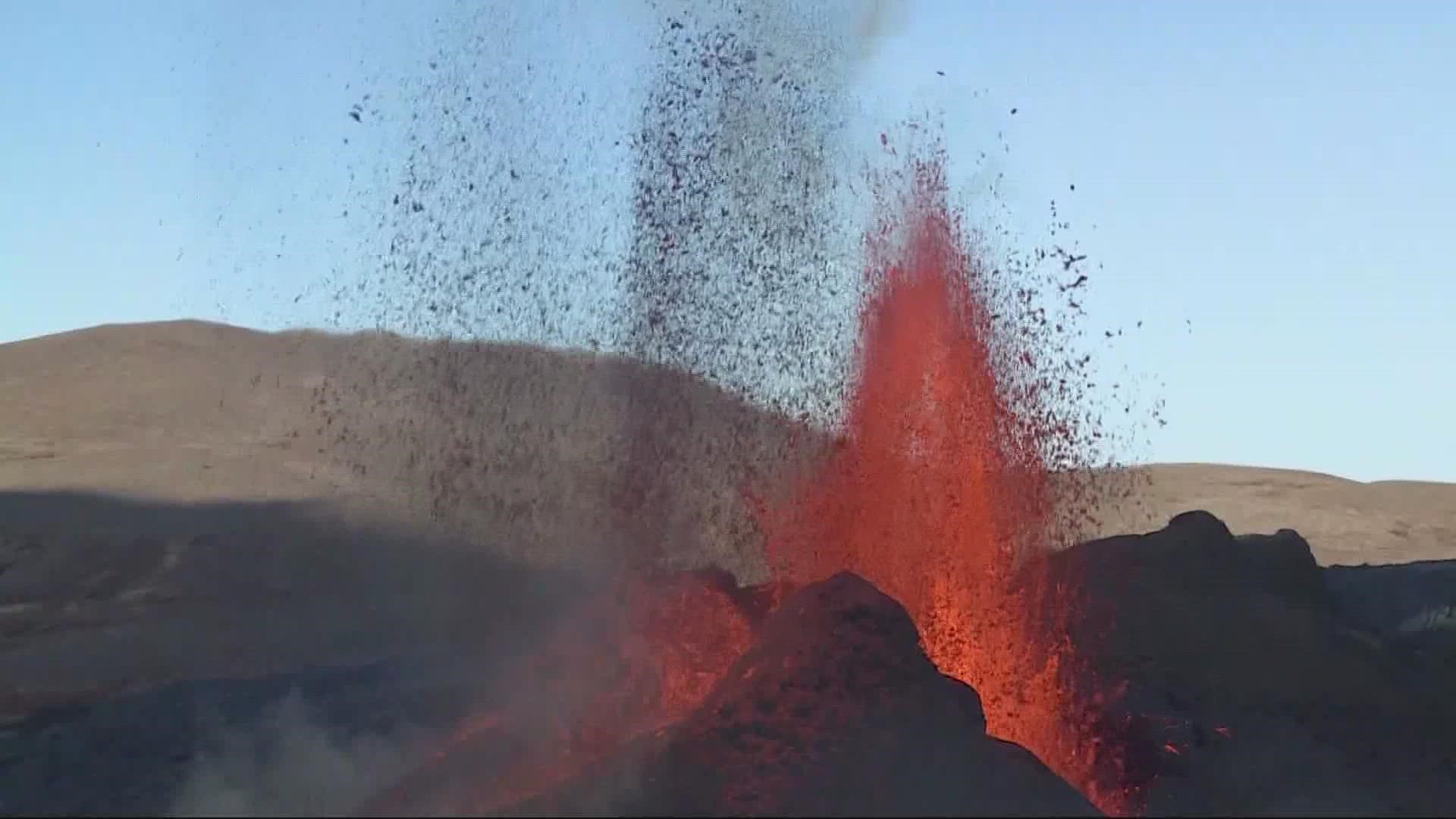CORVALLIS, Ore. — There is so much we still don't know about our oceans and how they relate to climate. But expeditions to the North Pacific by Oregon State University researchers from the College of Earth, Ocean and Atmospheric Sciences continue to give us answers, the most recent related to volcanoes.
"We actually made a fairly surprising discovery that volcanoes might be involved in the biological response of the ocean over long time scales," said OSU distinguished professor Alan Mix, co-author of the study just published in the journal Nature.
Mix said chemical analysis of sediment shows what was happening during ice melt due to rising temperatures during the last ice age 18,000 years ago.
RELATED: County health officials recommend replacing gas appliances, citing health and climate concerns
The results indicate that as glaciers melted away on volcanoes, the volcanoes became more active.
"It kind of makes sense. You cover something up with ice, it acts like a cork on the bottle, and then the ice goes away and it's easier for them to erupt," said Mix, who is an oceanographer and paleoclimatologist.
Mix pointed to Mount St. Helens as a modern-day example of the same effect, different in this case, he said, because a landslide basically uncovered or uncorked the mountaintop and led to its eruption.
Either way, major volcanic activity leads to a lot of ash in the sky and eventually into the ocean.
That's what they found with core samples in the Gulf of Alaska. They also found that the ash made a good iron-rich meal for plankton. That in turn put lots of organic material on the ocean bottom. Too much of that creates oxygen-starved areas in the water.
"What we found is this association and the surprising effect that the ice leaves. The volcanoes go off, the plankton bloom, then of course the plankton die, sink in the ocean, they consume oxygen, create these low-oxygen dead zones and that's obviously a bad thing," said Mix, who added that their findings deep underwater don't come with a doomsday forecast for a rash of eruptions any time soon.
"But I think the point is more learning from the past to figure out how to better live with the earth," Mix said. "And we don't have a choice, the earth has some ways it operates. And it's also true that we are perturbing the earth, we are causing climate change and that's going to do some strange things."

